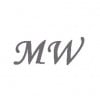What is the definition of "writer" on HubPages :D

This one is a bit controversial: My WordWeb 'free edition' says that a writer is "someone who writes (books, stories, articles or the like) professionally", or "a person who is able to write and has written something".
So all those guys who say that HubPages is only for generating the newest cookie recipies, and not for poetry, give me a break! Poetry can save and transform lives while your cookie recipies are just cookie recipies!
What is successful on HubPages has nothing to do with the definition of writer.
In fact, some of the most successful bloggers I know would never call themselves "writers". They have no desire to write a novel or a poem, or even to become a journalist. And that's why they're so successful!
Making a success of writing online is about 20% writing and 80% other stuff, like SEO, networking, self-promotion, managing advertising, keyword research and other admin stuff. I've seen many "writers" give up writing online because they want to WRITE above all, and they find it too frustrating to devote so much time to NOT writing.
You are a writer when other people say you are a writer. How do other people tell you that you are a writer? They tell you that you are a writer every time they pay you because of what you write. Same rule applies to every other profession for that matter.
Yep quite a stuff. They might pay millions (if not billions) to see just for once people like Judas, Akhenaten, Jesus or Mary Magdalene in flesh today.
You are a writer when you say you are a writer and you actually write :-) Other people's opinions are irrelevant.
Not according to the IRS or the legal system. Ditto for anyone who says they are a mechanic, musician, computer programmer, teacher, etc.
But the question wasn't 'What is a writer according to the IRS?'
If you write, you are a writer. Even if you are writing an email, a shopping list or a birthday card you are writing. You are taking thoughts and putting them into words, ergo you are a writer.
If I shop, I'm a shopper.
If I bathe, I'm a bather.
If I moth, I'm a mother."If I shop, I'm a shopper." Only if you buy something.
"If I bathe, I'm a bather." You win.
"If I moth, I'm a mother." You definitely win.
Hello there, Forum Queen and fellow writer. The HubPages adventures they do continue.

(I have to, sorry.) Shoppers look and look and look and look. Buyers buy.
"I'm going shopping, do you need anything?"
"Nah, I'm good."
~3 hours later~
"How was your shopping trip?"
"Meh, I didn't buy anything."When I made my first post on the subject, I knew I was going to catch some flak. That was part of the fun.

Truly, I'm just giving you a hard time, haha
Maybe it's an American thing? Here in the UK, it is assumed if you are shopping you are buying. If you are browsing or window shopping you are not buying. When I say, "I'm going to do the shopping." It means I will return home with enough food to feed two ravenous teens, two adults and four cats for a week. If I returned with nothing... and said, "Oh well, I did go shopping, I just didn't buy anything." I would receive some incredulous looks and a lot of whining... and hungry mewling. The cats might be a tad disappointed too.
If I don't buy anything, I'm a browser. Which sort of brings us back to windows.

Hey Bev

I browse, then I'm a browser, hehe. That's meeeeeeeeeeee
Re the topic: My thoughts are that even though I'm not interested the least in poetry, if some of my own not-poetry at all articles bore me to death; and my favorite lectures are memoirs from past characters; I tend to agree with you that if we write, then we're writers.
If there's any evidence that people who write aren't writers, what would Mrs de Maintenon, Mrs de Sévigné, or the Duke of Saint Simon have been? Even Louis XIV wrote a guide for Versailles' garden visitors.
In my agenda and the one of the world, they're, at least, writers if not respected authors.
I wouldn't pretend that writing down your shopping list makes you an author, even though you're your shopping list's author.
But on HP we are all writers, aren't we?
*Ok, back to writing that boring article my readership enjoy so much *
*LOL! I've done mine this morning (800 words)... I could do more but I have to go be a cleaner. And a dog walker. And a home-educator.... and then I must get on with some other work and be an 'accounter'.
I think on my last tax return (HMRC UK) I put 'Creative' as my profession. They could care less.In my last TR I put "extra" as here we have to pay fees for "self employed artists" for a lifetime in case we dare writing "writer"... Copyright stuff you see - but in my area, that copyright thing profits to all so-called artists (writers, comedians, singers, even those that never did a single thing, etc.)
Haha, we have the same "extra" occupations, Bev I just am not a dog walker these days since my dog left home and didn't show up in a week now
I just am not a dog walker these days since my dog left home and didn't show up in a week now 
All I know is that writers write... No matter their skill level. I really think that the word used to qualify writers' work is subjective. I mean, I don't like popular literature, does that mean that these authors aren't writers/author?
I know that MaM won't agree with me, we've already argued about it, but I'm a humble person and don't consider myself as a writer or an expert in anything, even though I'm a French History passionate. If anybody wants to see me as such, good... If not, it doesn't matter.
It's all subjective. In my case, I consider all Hubbers as writers.
*ETA - Boring article completed, now let's go doing another one.*Oh I do hope he comes home soon!
Of course, how we describe writers is completely subjective.Thanks Bev, I do hope too... I keep my fingers crossed, makes it hard to write.. Am I still a writer if I type with crossed fingers? LOL.
Actually yes is it quite the same for the IRS--in fact even less strict. Not only do they not care if you call your career "writer" when you do some "lesser" kind of writing, they don't care if you call it "dragon tamer" as long as you declare it under an appropriate schedule and attach the correct forms.
And I struggle to see why the legal system would care either as unlike "doctor" or "lawyer" it is not a protected title and so requires no standard of proof or accreditation to claim.Back when I used to watch all those courtroom TV shows long ago, I've seen on more than one occasion where the judge suddenly starts interrogating the claimant, who is declaring themselves as an artist or whatever, about how many previous sales they'd made and all that. A previous track record of earned income, or the lack thereof, from one's declared profession does indeed affect one's legal rights.
And as for the IRS... If you tell them you are a writer, but then declare a loss from your writing endeavors; the IRS will fall all over themselves informing you that you are a hobbyist and not a writer. Trust me.
I would comment in depth on this DasEngel, but it seems I've caused some controversial opinions already here on hubpages. That was not my intent, but it's life. However, I think you know where I would stand on this issue.
 I will say that poetry is inspirational, and who couldn't benefit from a little inspiration from time to time.
I will say that poetry is inspirational, and who couldn't benefit from a little inspiration from time to time.Hey I get that!
 Thank you so much for the lovely comment on my hub.
Thank you so much for the lovely comment on my hub.  I'm having a bit slow network today, and I also need to think out a proper reply to that comment. I'm a bit busy right now!
I'm having a bit slow network today, and I also need to think out a proper reply to that comment. I'm a bit busy right now! 
Enjoy your HubPages experience! :-DI agree with you Missy, and just to add that I do get paid to write poetry for people, so I must be a writer...yeah! (I won't comment in depth either ..it's safer that way)
Is it really controversial? Writers on hub pages are people who type words that make hubs, about whatever that hub is about, at whatever level of success they achieve.
I'd offer a famous quote by Ernest Hemingway as a response, "The writer must write what he has to say, not speak it" - If the written word is how you best express yourself, then I consider you or anyone else who meets that criteria a Writer
I would say a writer is someone who communicates thoughts and ideas with the written word. That applies on Hubpages as well as in any other type of writing endeavor.
Technically anyone can call themselves a writer, but that doesn't make them successful or relevant. As far as professions go, a writer is one of the broadest careers out there because you don't have to be well trained or even college educated to become one unless you're a highly niche/technical writer.
So any form of writing is good enough to qualify including poetry. I love reading poetry myself because it's the most expressive pieces you'll read from fellow authors. However poetry can be too personal and is more of a hubby than a way of life. Out of all the writing platforms, it's clearly the least successful and gets swept aside the most because of its "self" nature.- Helen Bolamposted 10 years ago
0
In order to be a writer you have to write something, writing a Hub is a good start. The internet gives you a freedom to write, and technology has started a revolution with new writer's producing eBook's, articles etc.
A famous quote by Edgar Rice Burroughs - I have been successful probably because I have always realized that I knew nothing about writing and have merely tried to tell an interesting story entertainingly.
Writer's have always had the urge to put pen to paper and write something interesting, be it, a story, an article or a poem. I do actually make money selling fiction and non-fiction books, articles, and creative works. My taxable income is writing, and IRS considers me a writer, so who am I to argue? I spend 3-4 hours a day at my keyboard putting ideas into words, so it seems pretty legit.
Saying only poets are writers is like saying only people who like Star Trek the Next Generation are Trekkies.
People are more likely to find your poetry by accident after looking into some cookie recipes or how to shave a cat so don't hate on your marketing team.I process all my taxable side employment under the general title of "writer". Some if it technically isn't even writing but it is the best overall description for the activities as a whole.
Hello everyone. I am a writer. I write for hubpages. It is fun. I have another job besides writing about anything. I studied a few years to become a writer. I respect my both jobs, and I take both jobs seriously. As a writer we do not make a lot of money for ourselves, but we get the satisfaction of writing our thoughts, and we let the audience read our words. I love hubpages. Everyone here is super nice. See you around.
To me, if you're, say, earning your full-time living as as, say, a hairdresser; and you write about hairdressing on HubPages; or if you're earning your full-time living as, say, an auto mechanic and all your Hubs are about that; AND if you're earning enough from your Hubs (or other, similar, online, writing) that you need to file a self-employment form... I'd say you should call yourself whatever you are in your full-time work but with the earnings from HP it would probably be correct to call yourself "writer". (I forget what any of the options on the self-employment form are. I do know there's the thing about sole proprietorship - but I forget what other options there are for "calling yourself something" There's also the "other income" thing on tax forms. So, I don't know, someone who makes a few extra dollars writing Hubs but not enough to file a self-employment form may (if this is appropriate for them, but, I don't pretend to know anything about anything other than what I've done myself with the self-employment form) end up using the "other-income thing" on their "main" form.
If a hairdresser or auto mechanic who writes about their own field of expertise makes little or no money with their Hubs they don't have to worry about what to call them-self (other than what they always call themselves on their tax forms). If I were writing on those terms on HP I'd call myself "hairdresser" or "auto mechanic" on here as well (in the author bio, on the profile) because I think that would work to anyone's advantage.
For a writer who is working for a company in any writing capacity and/or for someone who earns his/her living writing on their own, I think that goes back to thing about what would belong on tax forms associated with that one line of work, writing. I think that person should obviously call himself, "writer".
I think the person who has made money in any writing capacity, including freelance writing could "legitimately" describe himself/herself as a "writer" on here. Also, I think if someone devotes serious time to one or more writing projects of any kind but hasn't yet reached the stage of marketing and/or earning anything from it; it would be reasonable to call themself "a writer" (or "published author", which would be better still; but particularly for someone who, say, writes creative fiction or poetry, I don't think there's anything wrong with just saying that (but if the person is a hairdresser in "real life" I don't think there's anything wrong with saying (on this site, at least) that one is a hairdresser who is working on a first novel. If the person writes fiction (for example) on here, I don't think there's anything wrong with just calling himself a "fiction writer" working on a first novel" on here (this site).
I had times when my kids were little when I was only making part-time money writing and/or when I'd do more writing at one time than at another time; and whether way back then or in more recent times, I've had projects that I've worked on but put on one or another back-burner. Then, too, I've had times when I've made money writing online, on through some online company (and sometimes earned more from writing than at other times).
Depending on who (or what form) was doing the asking, I've at times called myself, "unemployed writer", at other times called myself, "writer", and yet at other times called myself, "part-time writer". Then, too, there have been times when I've had one or another "writing thing" going on but just called myself "unemployed" because it was easier to just say that than try to explain either to someone unfamiliar with "the complexities" of my own writing-related efforts, aims, long-term, goals, etc. (not to mention the complications of a number of things in my life); or else to someone who wasn't interested anyway.
I have always separated any offline writing efforts and any "for-hire" efforts from what I write online "for myself". Since I've made income with both (enough to need to file those tax forms) I think it's reasonable enough to call myself "writer" on here BUT I've always tried to highlight my background/efforts as they relate to the stuff I write online, and for myself (and/or because I just want to for one or another reason).
If you think about it, the only times one has to decide what to call himself are generally either on forms or one kind or another), on things like profiles/bios (in which case, I'd say, "aim to be as honest as is called for within the context of whatever the profile/bio is" (and if you're a hairdresser who bakes wedding cakes as a hobby then just say that). In offline/personal life, there are the people who know you and don't require you to call yourself anything. Then there are the people you just meet or are just getting to know, in which cases there's usually also opportunity to explain things like, "aspiring novelist" or "online article-writer".
These days, at least until I see what I want to do from here on and with regard to stuff I've written online, I'd call myself "nothing" while I re-organize, sort out, and decide about stuff/accounts that need spiffing up, polishing, or deleting. The only thing I've been writing ONLINE in recent times has been what I call, "blah blah", on one or another of my own blogs. When I decide what to do with any number of the pieces/projects I have stored in my PC (because of any number of issues with online posting and/or because they aren't things I'd post on the Internet anyway), then I'll stop calling myself "nothing", "part-time writer", and/or "unemployed writer" and take it from there. (Tax season is months away. I have no real need to worry about what I call myself right now anyway. ). (Long post, I know, but there's only so much nothing-doing and "blah-blah"-writing) the writing-inclined are able to do before going a little wild and yet not having to worry about "the elements of a high-quality Hub".)
). (Long post, I know, but there's only so much nothing-doing and "blah-blah"-writing) the writing-inclined are able to do before going a little wild and yet not having to worry about "the elements of a high-quality Hub".)- FatFreddysCatposted 10 years ago
0
I've always referred to myself as an "amateur" or "wanna-be" writer....
Based on your traffic accolade, you've been paid. Sorry, dude; you're a writer.

A writer may be defined in many ways whether professional or non-professional but, regardless of what category you are, you love to write topics that interest or inspire you. Writers is a unique endeavor in here you have the full freedom of expression depending on the topic of interest but what defines a good writer from bad writer is "responsibility" In my opinion, writer's main goal is to "inform and educate" the public and that carries responsibility. Write, love your work, research. discuss and publish, how about that?
Thank you. A nice reply. Well some hubbers (with a tick for money from Google) may not find enough humor in the statement that you've made: "what defines a good writer from bad writer is "responsibility". :-)
However, again your reply was helpful.
That's another definition of a writer, writing style varies from different writers. To capture readers or visitors to a particular Hub may also depend on the content and readers. Some readers just love to browse and evaluate content later especially written in good English. "Your English is Good, but we need Content" How about that?
In my estimation, a writer is someone who writes articles, books, and essays who is highly recognized, published, and gets paid for it. Writers are professionally recognized by others in their field.
There is no definition of 'a writer' on HubPages so far as I am aware. There are only people who make hubs - and who are required to write to an acceptable standard of English. That said....
Most people can write, not everybody is "a writer".
One should probably make a distinction between professional and amateur/hobby efforts
If you earn significant income from writing, you are a writer
If your declare your occupation to the tax man as writer - and report income accordingly - you are a writer
If you are employed as a writer by an organisation (ie got a proper employment contract), you are a writer
If you have been commissioned to write articles for proper print publications, you are a writer
If you have been published by a reputable proper publisher, you are a writer
If you win prizes for your writing you are a writer
If you win accolades for your writing from serious critics you are a writer
Your hobby is writing if:
you earn small sums of money on an occasional basis from writing
you do NOT declare your occupation to the tax man as writer
you are NOT employed as a writer
you do NOT win credible prizes for your writing
your publications are via vanity sites or self-publishing
your writing fans are family, friends and other hobby writers on writing sites
That said, everybody has to start somewhere.
I have a friend who was a hobby writer for years. She is now a New York Times best seller writer, her books have sold all over the world and she is dedicated full time to her writing - and her husband gave up his job to make life work so that she could carry on writing....
Her constant message to people who want to know how she did it is you need to have vision, persistence and put the time in on writing.
You get good by writing not by writing about writing on forums.
What makes the difference between a hobby writer and a professional writer is talent, persistence and an awful lot of hard work - not to mention a huge amount of writing!HubPages doesn't have to define what is a writer whether amateur or professional, small-time or big time writer as long as you submit articles for publication, to them you are a writer! "You are what you write" the content of what you write is a description of a person's experiences or background, therefore, each hub or article publish is unique and can not be compared. As long as the writer kept a responsibility of what she/he writes is best appreciated. You have succinctly defined what a good writer should be, But sometimes a "standard" will depend on a person's perspective and may vary from person to person. Nice post!
Writers are thinkers. Good writers are good thinkers. Professional writers are called authors and they have thoughts that are edited until a publisher can push them without loosing his good reputation. A good author has thoughts that sell because there is just something really compelling about not only his thoughts but the brilliant/creative way he expresses them ... Like Charles Dickens. Did this revered author research to find out what the public would buy? I would say, nope not at all. Did he write from a deeper creative place? I would say …
PS Just because this place is called Hub Pages, doesn't mean …
Right?yes, but HP gives you the opportunity to express and publish you creativity as a writer or author. Whether writer or author has no meaning to HP as long as you passed the evaluation process and your work is published that's HP.I'm not depending HP, I'm also new to HP just started last June and it appears like that. As to Dickens, He's an inspiration to most writers but time changed. the present generation has a lackluster idea about Dickens. the kind of media you read or see now is different even from our generation.The Internet offers you media at your fingertips as a writer or author we have to adjust to the call of time. Write to your heart content, be responsible, and publish. How about that?
Is nobody aware that Dickens was very smart when it came to building an audience? He had marketing savvy!
He published his novels as serials in weekly or monthly parts through the media that was most read at the time - newspapers!
He started his own magazine - Household Words http://www.djo.org.uk/household-words.html - so that he could write what he liked.
It also allowed him to publish other authors of his day - such as Mrs Gaskell
He also became editor of his own newspaper - The Daily News https://en.wikipedia.org/wiki/The_Daily_News_(UK)
Well known authors such as George Bernard Shaw, H. G. Wells, G. K. Chesterton wrote for his periodical.
Note that he:
1) used the media most accessible to and read by the audience of the time
2) broke up his books into readable chunks - which left people wanting more
3) moved on to creating and owning his own media so he could write what he liked
4) owned a platform which allowed other authors to also publish their novels in a serialised format
Now does anybody need a list of famous and recent contemporary authors who had the rights to their books bought by publishers and their books published AFTER they wrote their books via their blogs?
Anybody need another role model?Let's put it in a proper perspective, we are referring to Charles Dickens, the Author, the Novelist, the Writer? No argument to that, Dickens enjoyed unprecedented popularity during his lifetime. Considered by his critics and followers as a literary genius. The greatest novelist of the Victorian era. Dickens, published his first novel in 1836-The Pickwick Papers and the last novel in 1870-The Mystery of Edwin Drood and among these novels is the famous -A Tale of Two Cities (1859) and the popular short story-A Christmas Carol, remember? Although, taught in High School among Classical Literatures, how many High School students do you think gave a serious thought about Dickens work as we do during our generation?Moreover, I did not know that Dickens has a Newspaper or Blog during his time? unless his name was used by others because of his popularity for a different agenda in the present time? Very nice discussion!
anyone who can write and draw traffic to their hubs.
On each and everyone of our hubs it says under our profile picture: "More by this Author". So according to HubPages we are not writers but authors.
http://www.oxforddictionaries.com/defin … ish/writer
1 A person who has written something or who writes in a particular way:
'the writer of the letter'
1.1 A person who writes books, stories, or articles as a job or occupation:
'Dickens was a prolific writer'
'a writer of short stories'
http://www.oxforddictionaries.com/defin … ish/author
1 A writer of a book, article, or document:
'he is the author of several books/articles on the subject'
Here is my
Job Description for Writer/Author on HubPages:
Someone with
* good command of English who can convey
* useful
* interesting
* well researched information with the
* written word plus
* appropriate illustrations /
* videos,
* polls etc (whatever it takes) and also possesses
* a good knowledge of SEO and
* promotional skills.
Where does that leave poetry?
I leave that to the poets.Yes, that should be our goal as a writer/author, thanks for the clarification
I thought a rhyming cookie recipe would tick all the boxes. Poet stuff and income generating material in one bite size chunk.
While writing (and cooking) the recipe I got stuck on a rhyme for Almond. That meant using Walnuts which have led to another bowel flare up.
On the plus side it has given me inspiration for a Haiku.The important thing to remember is that content farms consider none of us to be writers no matter what we put on our tax returns.
What makes you say that? I have written for quite a few and they seemed to either consider content creators writers, or just not care on way or the other what we called ourselves.
Yes, I agree with you, but I tend to disagree with Kylyssa. Thre are rules to follow in order to protect the Co. and the reading public, the QAP is designed for that, you can write anything to your heart content, but you have to pass QAP first. QUALITY is the KEY in order to publish at HP that's how HP cares for their Writers and Viewers, don't be discouraged if they turn back your article, meaning there's more room for improvement! how about that?
I have never had a hub fail QAP. Why would you make that assumption?
Have you read communications from a variety of content farms? They tie themselves in knots finding ways to refer to writers as anything but writers.Sorry if I misunderstood your thoughts, nothing personal just for the sake of discussion, how about that?
Do you have an example? Because I have written for about 12 -15 content sites and not seen this. They may or may not use the term "writer" depending on their branding and whether they are written content only (or maybe also video, photo etc), but the are not hostile to it.
There is no commercial reason for content sites to care if we call ourselves writers or not. And they are a commercial enterprise.Just reread a few of your interactions with clients and publishers and you'll easily spot these differences. It's nothing to get upset about. Content farms see you as an interchangeable and easily replaceable user and traditional publishers and businesses that hire writing see you as a writer with skills they can make use of. They are completely different business models. Why should they see things the same way?
There's nothing wrong with content farms taking pains to avoid calling people who write the content they place advertisements on writers. It's probably just a legal thing to avoid confusion and to step lightly around the fact that writing is the product and that the product is produced by the site's users. A content farm is a different type of business than a traditional publisher.
The purpose of a magazine, for instance, is to provide reading material that can be sold to readers. The writing and images are primary in importance and the ads are sold to keep the magazine profitable. The primary goal of a magazine is to gain paying readers. On content farms, the ads are the most important element and content is only of importance for its ability to serve as an attractive setting for ads. The primary goal of a content farm is to get advertisements clicked on.
Squidoo was a fairly obvious example of a content farm that tripped over itself to avoid using terms related to writing. If you recall how their blog posts and other communications were worded they avoided the words write, writer, and writing to such a degree that their communications sounded contrived. They even took a slightly hostile tone in some of their canned emails, as if the lensmasters were the enemy instead of the people providing material to place ads on. I know they are gone and irrelevant but they were the best example. HubPages is much more subtle.
Traditional publishers and business clients treat interactions like business transactions in which both parties have something to offer, no matter how automated the process. The act of writing is treated as skilled labor; the writing itself is treated as a valuable product that serves a purpose. Content farms interact from a superior position and treat the interaction as if the content farm is the only party that has something to offer. Content is often treated like something users are graciously allowed to post rather than as something that adds value to the site.
There's no reason to avoid discussing differences. The HubPages staff are professionals; they aren't going to freak out on anyone for noticing a difference here and there. They probably couldn't care less how we view ourselves so long as we keep producing content. It's human nature to compare our experiences.The primary goal of a magazine or newspaper is to get advertising dollars.
They need readers in order to demonstrate to advertisers that they have a large audience of potential consumers. It is the same model as the Internet content sites. Papers and magazines need advertisers; advertisers need consumers; consumers need a lure to look at the magazine filled with advertisements, so they have articles, each of which is lightly interspersed between 15-30 pages of ads.
Go look a Vogue or Architectural digest. 70% of the pages are advertisements. You will have to turn 40 pages in Vogue before you even find the table of contents.
Newspapers and magazines often continue sending out their products after subscriptions have expired in order to maintain a certain level of "readership" for their advertisers. We get a free newspaper here 5 days a week. It's production is paid for entirely by advertising dollars. The more readers, the more they can charge for the advertisement.
I say that because I've never written for a content farm that interacted with writers the way other business professionals interact with writers. I interact with business professionals in my capacity as writer nearly every day. The attitude difference is huge.
There is no specific way to interaction with writers. Content writers are taking part in a highly automated process and should manage their expectations accordingly.
I don't expect content farms to view me as a writer. It's just not their style. Recognizing and accepting that most content farms will not view you as a writer is managing your expectations.
In virtually every interaction I've ever had with a publisher or client it's been treated as a business interaction that recognized the contribution of both sides, even when the process was highly automated. Rights and responsibilities were clearly and minutely defined. Things like copyright details were never stated ambiguously.
Content farms word things ambiguously. If they truly viewed our contributions as writing, they'd use the standard copyright legalese publishers use in their TOS. There would be terms and conditions to using the HubPro editing services, too.Kylyssa has a point - an individual may consider themself to be a writer but those involved with financial transactions relating to writing may very well take a different view.
I'd show you my extremely detailed contract when a well known publisher engaged me to write a book - but I can't (commercial confidentiality) - however it looks nothing like the T&C of a content/article site and it's also extremely precise about copyright.
Ditto when engaged as a writer by a publisher or a magazine I get paid a fee specifically for my writing. It's paid on the basis of work done.
On the other hand - both of the above examples relate to publishers of print publications - not online websites.
So far as taxes are concerned....
UNLESS you can demonstrate an ability to generate significant income - and profit - over time the tax people will only consider you to have a hobby and will not allow you to claim tax allowances or reductions re relevant expenses."So far as taxes are concerned....
UNLESS you can demonstrate an ability to generate significant income - and profit - over time the tax people will only consider you to have a hobby and will not allow you to claim tax allowances or reductions re relevant expenses."
Tell that to Delta Airlines. They lost billions of dollars year after year, yet no one consider that a hobby.That's a corporation which is different from personal income tax.
Plus you still only get to charge allowable expenses to tax AFTER you make a profit - not before!I am assuming we are in different countries. If you have multiple avenues of income, and one is losing, you can offset that against the profit centers. If you live in a homeless shelter, you don't need to worry about taxes.
Obviously you don't live in the US because here you pay taxes and social security on income even if you are homeless. Yeah, yeah, people will say that payroll taxes aren't taxes and that social security isn't taxes but poor people still have to pay money out of their paychecks if they have a day job and and they definitely must pay taxes on self-employment income. When you work as a freelance writer, you pay more into social security than if you are employed by someone else because employers pay part.
When the writing gig wasn't doing so well for me, I still had to pay taxes and social security even though I was well below the poverty line. If it hadn't been for the kindness of friends, I wouldn't have had a home but I still had to pay taxes.I live in the USA, and if you do your taxes correctly you will not owe taxes, especially if you are below the poverty level.
If you earned income, and are below the poverty level, the government will PAY YOU an earned income tax credit. You need to find help to do your taxes if you are below the poverty level and still paying taxes. You may even be able to receive funds back on previous years.Solaras has a point, I'm not from the US, but any sensible government whether you like it or not will tend to extract tax if employed legally, for example, "Ghost writers" your name may not appear on the magz or article published, but the Government can still run after you because when the publisher or Co. file their Income Tax your name will still appear as attachment (evidence) as to whom they employed, the same reason why HP will require us to submit tax information before they pay us. But that is understandable from legal point of view, Nevertheless, the legal system have evolved, that tax payers are categories into brackets- low to high income and there is a system how to compute you income tax returns properly. As long as you're employed by companies with legal characters, the government can still run after you sooner or later. and parallel to this is the reason why HP will let us understand first the terms and conditions or copyright laws, etc. before we can publish our articles at HP? For tax matters, there are people who can assist how to properly file an income tax. How about that? This may be academics, you know this already, you're ahead of us, but for newbies maybe they can pick up something useful from the discussion.
Self-employed people have to pay self-employment taxes if they make over $400 a year. Not that you'll bother reading them, but the links below prove you wrong. The self-employment tax is currently 15.3% for every self-employed person who makes more than $400 a year. That's the "certain amount" you were referring to and it's far, far below poverty level.
http://www.irs.gov/Businesses/Small-Bus … Tax-Center
http://www.irs.gov/Businesses/Small-Bus … care-Taxes
https://en.wikipedia.org/wiki/Earned_income_tax_credit
I made less than $6,000 that year. I have no children. I am single. I paid in more in social security and medicare taxes than I got back in earned income credits. Even if I'd gotten the maximum earned income credit for a single person, it would have still been less than the medicare and social security taxes I had to pay. Earned income credits are primarily for parents.
Yes, my friends helped me out just like I've helped my friends out because that's what friends do. There would have been no benefit to refusing their kindness. It doesn't make me a bad person any more than other people accepting my help over the years made them bad people.
I'm not going to bother interacting with you beyond this post. You'd rather say something nasty and rude and attack a stranger's character than bother to look on the IRS website or even put a search into Google. I don't know what you get out of that behavior but I'm not interested in conversing with people who act that way.
I'm not proud that I've made less than poverty level income a few years since becoming ill and being forced by circumstance to work from home, but I pay my taxes.
No, I wasn't homeless then, but people who are homeless do not legally get to avoid paying taxes if they make over $400 a year. If homeless people work traditional jobs, their paychecks get social security and medicare taxes taken out of them just like everyone else's. If homeless people are self-employed, they pay self-employment taxes on income over $400 a year.
If there are loopholes that allow poor people to avoid self-employment taxes, I certainly don't know what they are and couldn't afford to hire a tax accountant those years anyway.
I live in the USA, and no, homeless people do not pay Social Security or Medicare taxes. You only pay those taxes when you reach a certain income level. Apparently you did, but did not pay the income taxes as they accrued, so your friends had to bail you out.
Had you made less than the poverty level - or in fact a good bit more than that, the government would have given you an earned income tax credit. They would have paid you to have earned a small income. However, it appears you earned too much for that, so your friends helped you out with your taxes. Great to have such good friends!!
Poetry's never saved me .... cookies, on the other hand

A writer is anybody that can write.
A successful writer is anybody that can draw an audience that isn't there just to mock.
I write
Therefore I am
Now ... where's that cookie I just baked....If you guys examine the end of this page, you'll encounter something like this: "Copyright © 2015 HubPages Inc. and respective owners."
The content of even this very page, is copyrighted.I don't understand the controversy. I write, so I am a writer. I don't earn my living as a writer, so I am not a professional writer.
I do earn some money/make a profit as a writer. I do claim that profit on my income tax. I spend very little money on my hubs, so there are not many expenses to declare.
Does HP see me as a writer? I never really thought about it. I believe they have referred to a person who has written a particular hub as "the author." Does it matter if HP thinks I am a writer?Re Solaras's post re tax (we're getting too far across the page so I'm starting again on the left!)
Well I'm in the UK and I think you're in the USA - but so far as I'm aware the principles are more or less the same when it comes to business vs. personal tax.
I looked up the IRS statements and found this
http://www.irs.gov/Businesses/Small-Bus … s-Expenses
and this Publication 535, Business Expenses.
http://www.irs.gov/publications/p535/ch … 1000208630
Below is the list of the criteria for what the IRS considers a business vs 'not-for-profit' (a.k.a. "hobby" activities). Publication 535, Business Expenses states
"Not-for-Profit Activities
If you do not carry on your business or investment activity to make a profit, you cannot use a loss from the activity to offset other income. Activities you do as a hobby, or mainly for sport or recreation, are often not entered into for profit.
The limit on not-for-profit losses applies to individuals, partnerships, estates, trusts, and S corporations. It does not apply to corporations other than S corporations.
In determining whether you are carrying on an activity for profit, several factors are taken into account. No one factor alone is decisive. Among the factors to consider are whether:
* You carry on the activity in a businesslike manner,
* The time and effort you put into the activity indicate you intend to make it profitable,
* You depend on the income for your livelihood,
* Your losses are due to circumstances beyond your control (or are normal in the start-up phase of your type of business),
* You change your methods of operation in an attempt to improve profitability,
* You (or your advisors) have the knowledge needed to carry on the activity as a successful business,
* You were successful in making a profit in similar activities in the past,
* The activity makes a profit in some years, and
* You can expect to make a future profit from the appreciation of the assets used in the activity."
So.... like I said
"So far as taxes are concerned....
UNLESS you can demonstrate an ability to generate significant income - and profit - over time the tax people will only consider you to have a hobby and will not allow you to claim tax allowances or reductions re relevant expenses."The first 3 line items prove my point. However - most hubbers are not "not for profit" entities. Not for profit = non-profit. We are typically not entities engaged in charitable organization activities.
If we were however, only one answer positive from your list is required to make a case for a business pursuit.
"* 1) You carry on the activity in a businesslike manner,
* 2)The time and effort you put into the activity indicate you intend to make it profitable,
* 3)You depend on the income for your livelihood,"
1. People here (other than poets) carry on the business of article writing, in a businesslike manner, specifically in order to make a profit.
2. Anyone expending effort on this site might reasonably expect to make a profit from their business related from their efforts.
3.Many may expect the income from this site to add to their livelihood. It is not a requirement that this be their sole source of income.
BTW: Are you so exceptional that the tax laws apply differently to you than from your fellow authors?I do agree it's not about the income being your sole source of income.
However it's not really about cherry-picking the ones which suit you. The quote makes it clear that several are relevant. How about
"* You change your methods of operation in an attempt to improve profitability?
The only real point I'm making is that while everybody needs to declare the income for tax purposes, most will be treated as hobbyists for tax purposes - particularly if they have no other source of earned income or do not have a permanent full time job or have not sought better ways of making money from writing.
As people have commented many times in this forum, many of the people making serious income from writing content have departed long ago (because the potential for earnings is so much less than it was) or are earning from hubs written long ago in addition to multiple other sources of income from writing on other sites which they have developed since.
Writing is an interesting occupation from a tax perspective.
In the UK the Revenue fully understands that pattern of income streams can be very 'bumpy' i.e. nothing at all while you research and then write the book/play/film - and then oodles when it's finally published/optioned/released. They allow people to spread their income backwards over the years it relates to in order to smooth out the income and reduce the tax that will be paid if it were to be treated all in one year
This is the reference from HMRC for averaging for all those who create literary or artistic works https://www.gov.uk/hmrc-internal-manual … l/bim84000 - however note the 50% rule.
Specifically BIM84060 states
"A trade, profession or vocation qualifies for averaging if the taxpayer’s profits from it are derived wholly or mainly from creative works.
HMRC regards the ‘wholly or mainly’ test as satisfied if more than 50% of the profit is derived from qualifying creative works.
‘Creative works’ are defined as, literary, dramatic, musical or artistic works or designs created by the taxpayer personally or, if the qualifying trade, profession or vocation is carried on in partnership, by one or more of the partners personally.
Generally these are works which are intellectual property of the creator, protected by law. The terms are defined in the Copyright Designs and Patents Act 1988 in relation to UK property. The relief also extends to similar property protected under foreign jurisdictions. Profits may be derived by allowing others to reproduce the creative works (for example, authors’ royalties or advances on royalties) or by outright sale."
I figure if you write for someone and they pay you (under contract) or you write something on spec as a free-lancer and sell it you're a professional writer. I have done both many times. Therefore, I am a professional writer (I don't count passive income efforts as "professional" writing only because anybody can do it with a little effort and not everyone makes any money at it). To write and sell makes one a professional, don't care if it's poetry, short stories, novellas, novels, recipes, or how-to pieces: if you write it and someone pays you (vs. ad-share) you're a pro! Good post.
So... what if someone does a drawing and sells it on a hat? Does that make them an artist?
I am not sure if "writer" or "artist" will make me sound more up myself than I already am.It may not make that person a "fine artist" but it certainly qualifies them as more than a hobbyist "arts-n-crafts" person; the sale is what defines "professional". And the "hat art" sort of thing would likely fall in the category of apparel design or graphic arts (professionally).
Thanks Vic, from this day forth I will step out with my head held a little higher.
"Oh yes" I will say to people in the street, "I am a hat seller".
That would make you a hat-seller/writer/artist.
Lol. I need to update my LinkedIn profile...
Sounds like quite a unique handle to have.
Related Discussions
- 49
What is the average income of a new article writer on HubPages?
by Aman Ullah Ghazi 3 years ago
Need detailed and honest explaination.
- 14
What do you like MOST about writing on Hubpages
by Susan Ream 11 years ago
What do you like MOST about writing on HubpagesWe all have reasons for choosing Hubpages to store up our treasured writings. I'm curious to know what motivates other writers to write on Hubpages.
- 23
Question about Controversial Hubs
by Carolyn Rhoads 12 years ago
Do you more experienced Hubbers believe writing about controversial topics like politics hurts or help your page traffic? For example, if you disagree with someone's political Hub, will you not visit their other Hubs?
- 55
Time to stop writing new articles for HubPages?
by promisem 6 months ago
I have been pleased with the audience and revenue for my articles on HubPages since joining the site some years ago.I commend the company for creating the successful niche sites at a time when similar sites were folding. My existing articles that moved to those sites have done even better than...
- 49
How do people have time to be successful on Hubpages?!
by RunningDeer 13 years ago
How do people have time to be successful on Hubpages?!I just recently returned to school after a year long hiatus. I am working two jobs and going to grad school. I feel like I never ever have time to get on Hubpages to read articles, let alone write one. How do people with...
- 26
What do you think about someone on Hubpages that pays a freelance writer to writ
by Pamela Oglesby 13 years ago
What do you think about someone on Hubpages that pays a freelance writer to write their articles?





































